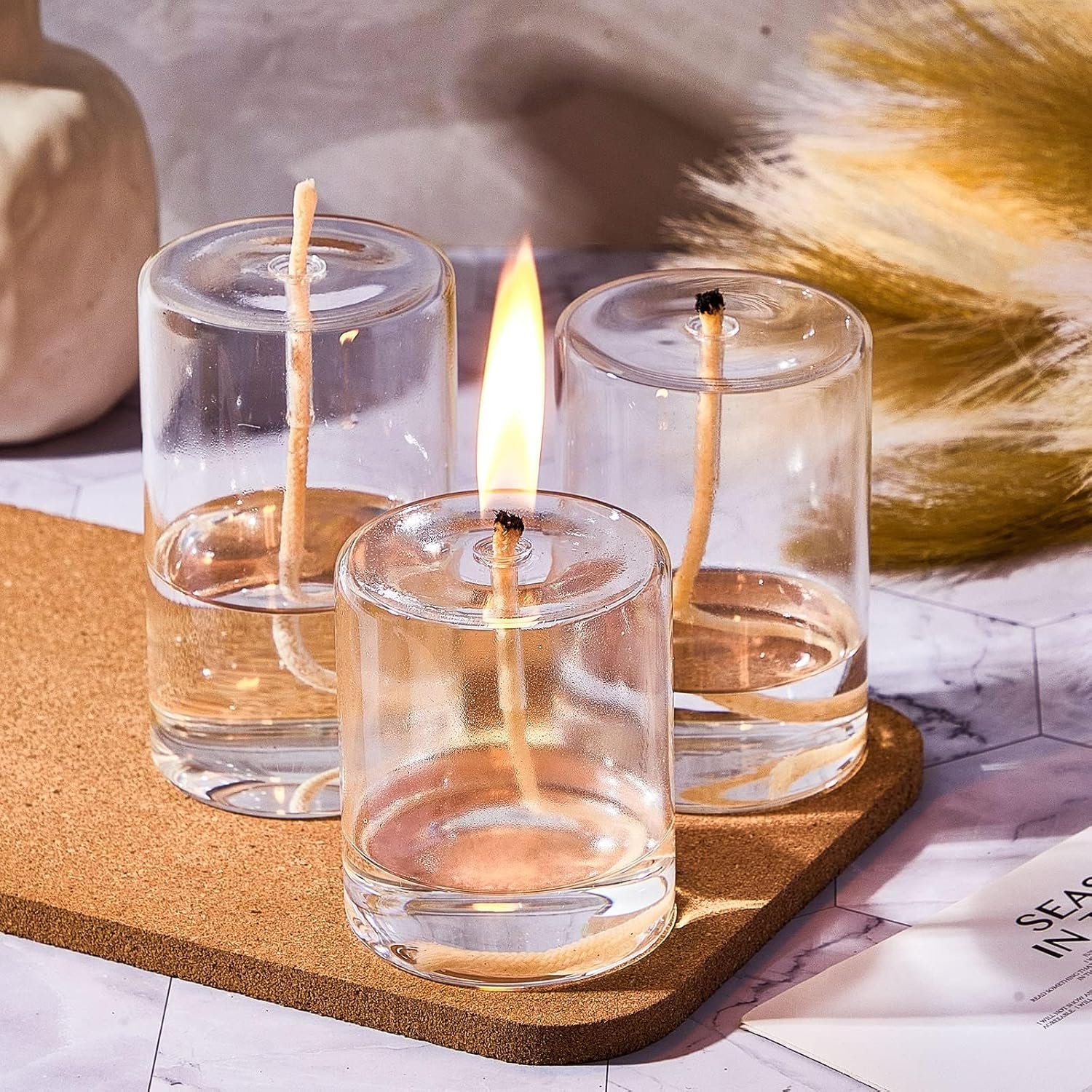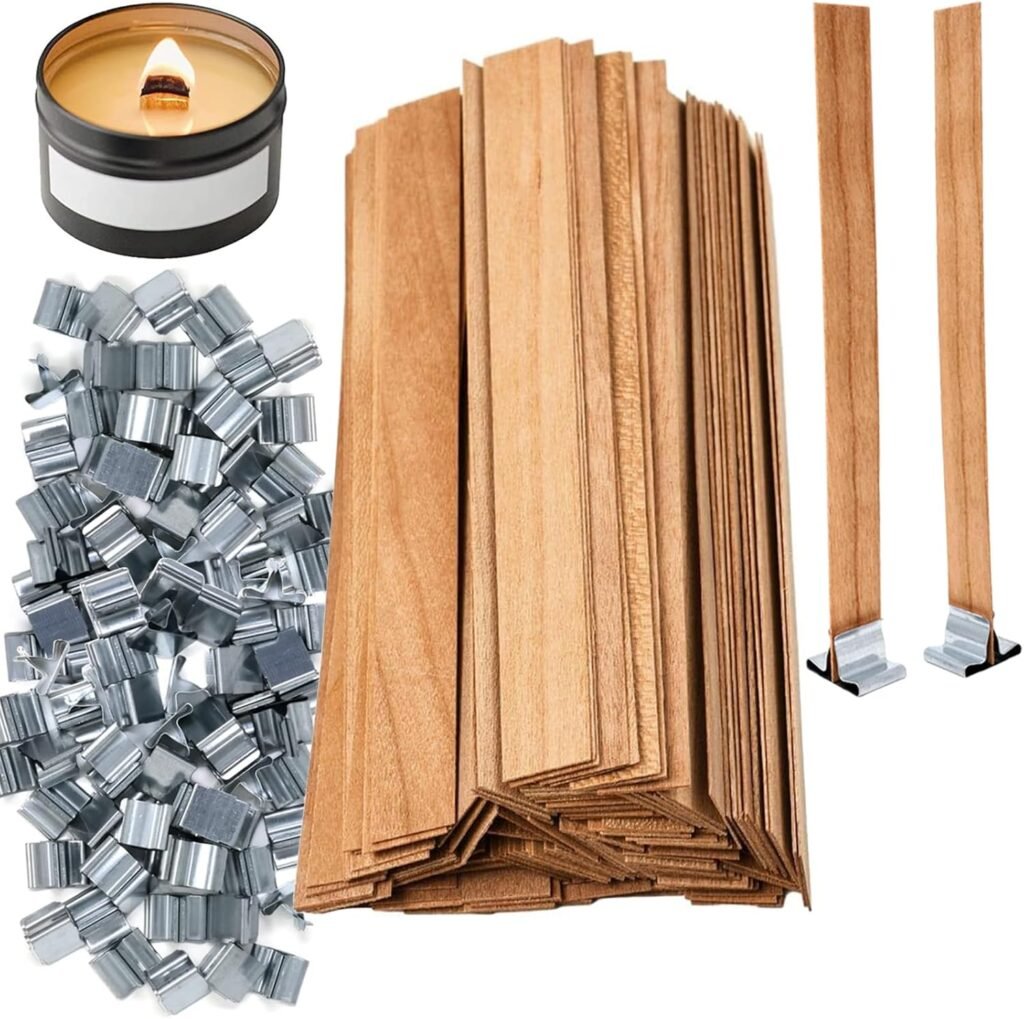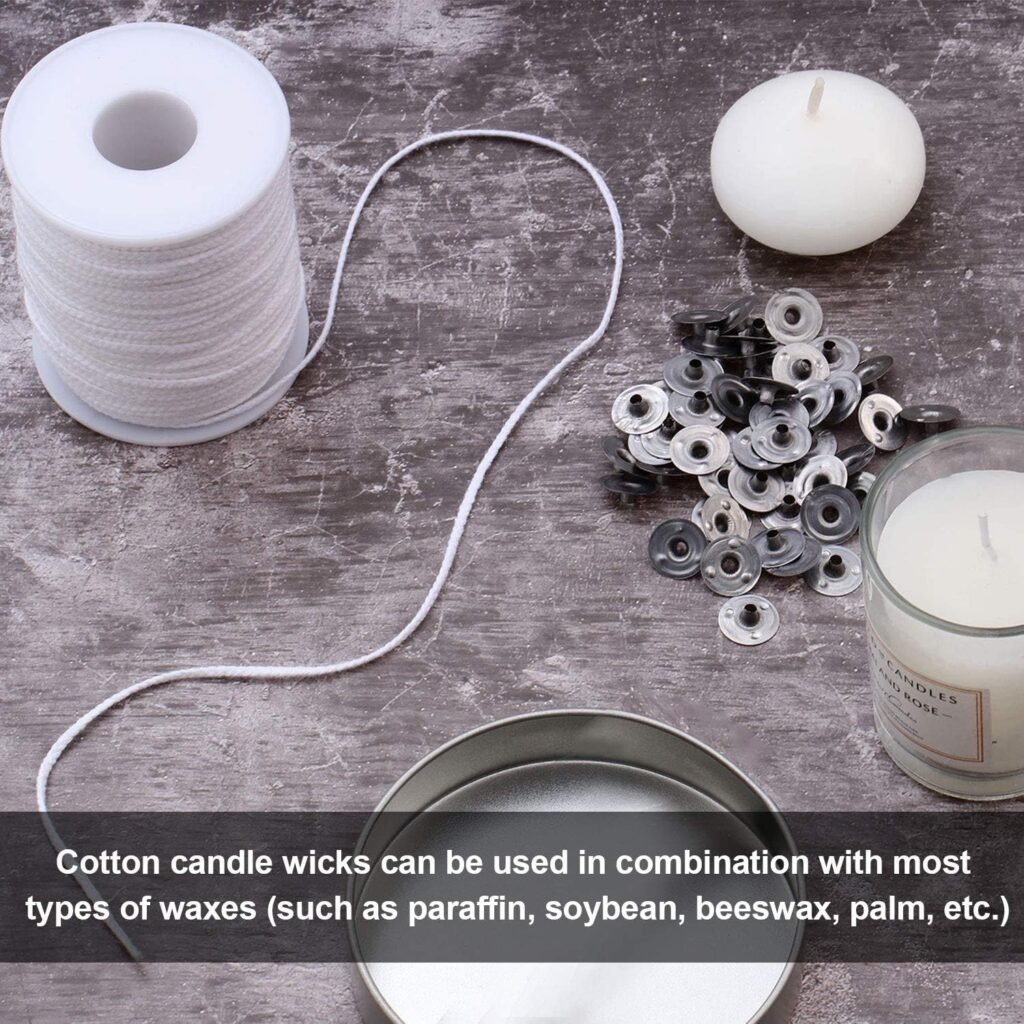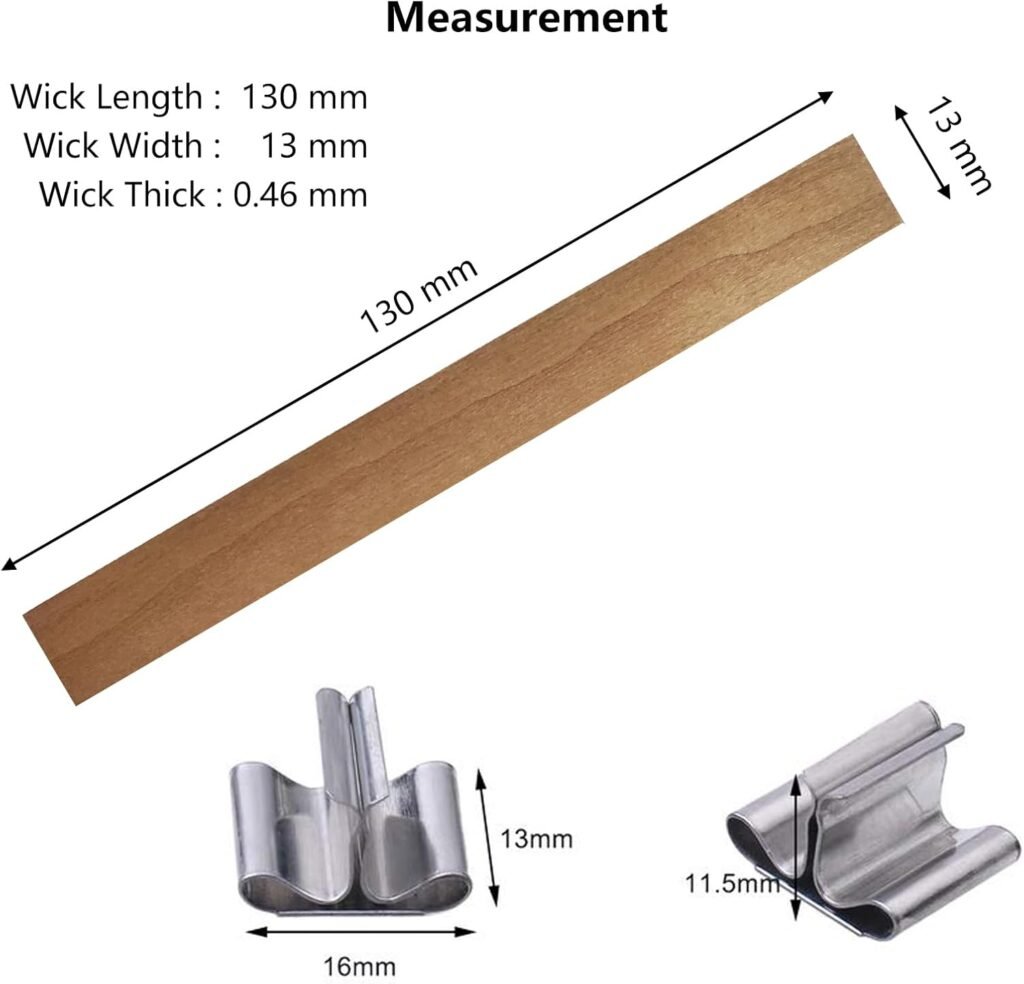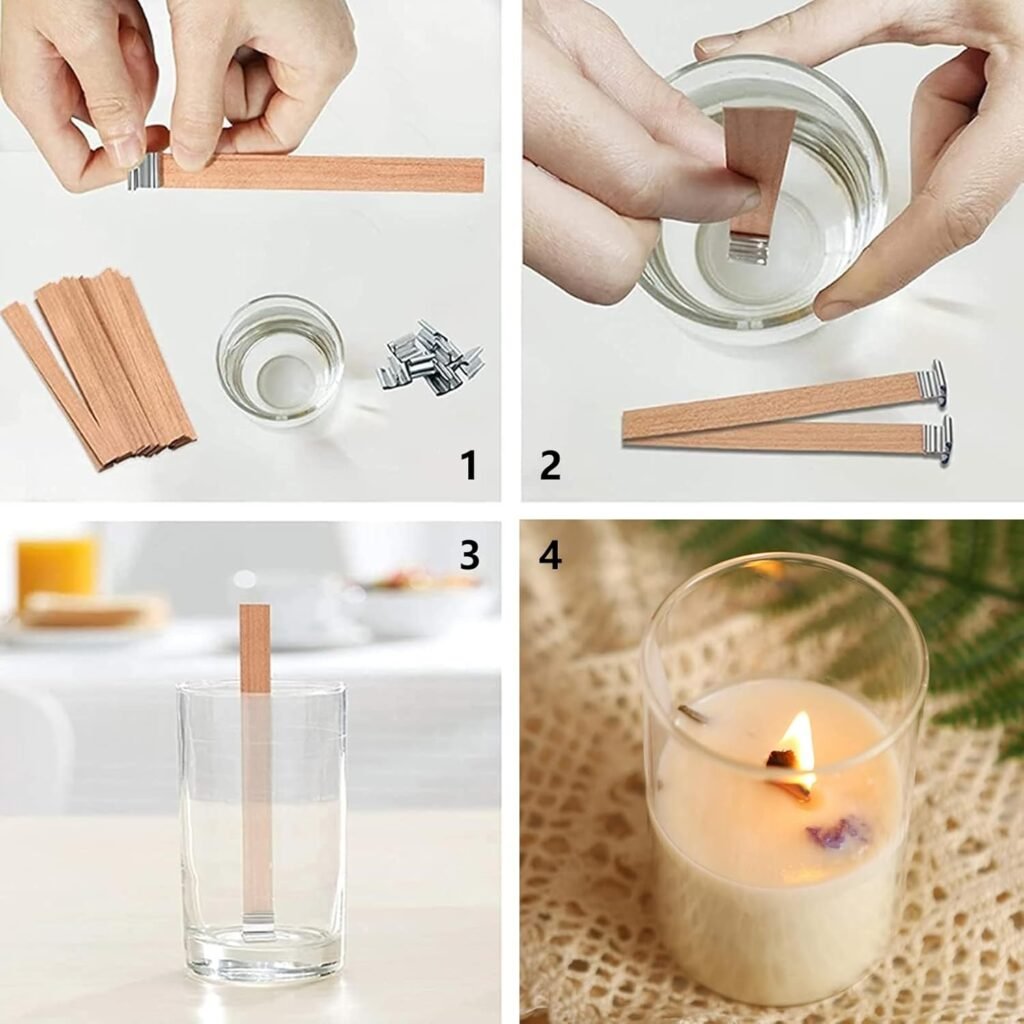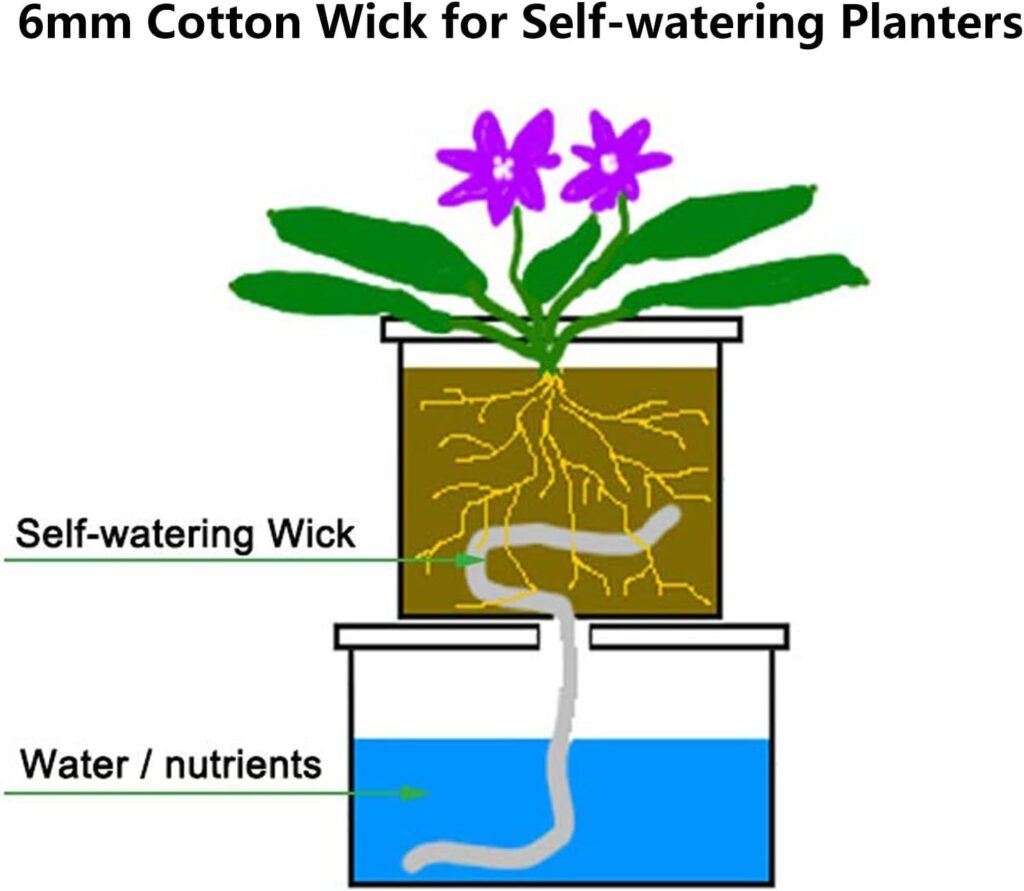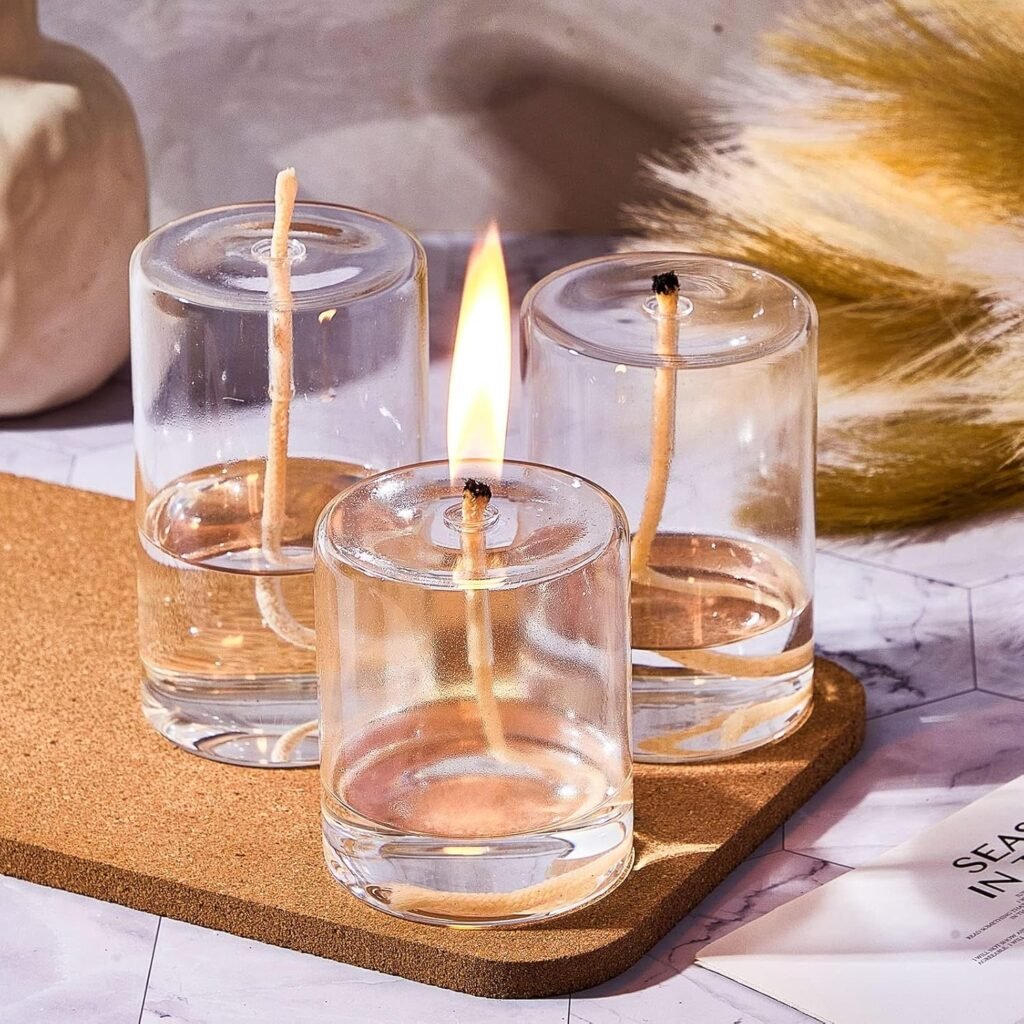Have you ever wanted your handmade candles to sound as comforting as they look while burning cleanly and reliably?
Product overview
You’re looking at the “Extra Thick Wood Wicks for Candles Making 0.75 x 5.12 inch Crackling Wooden Candle Wick 100 PCS Natural Wooden Wicks for Candlemaking Wide Candle Wicks with Candle Wick Holders Metal Base.” This product promises double-thickness wooden wicks that produce a crackling effect, paired with metal holders to help you secure the wick during pouring. It’s marketed toward hobbyists and small-batch candlemakers who want a rustic, crackling candle experience without the typical smoke or chemical residues.
Key specifications
Below is a quick breakdown of the main specs so you can get a clear snapshot of what you’re buying. You’ll see the size, quantity, material, and other important facts at a glance.
| Attribute | Details |
|---|---|
| Product name | Extra Thick Wood Wicks for Candles Making 0.75 x 5.12 inch Crackling Wooden Candle Wick 100 PCS Natural Wooden Wicks for Candlemaking Wide Candle Wicks with Candle Wick Holders Metal Base |
| Dimensions | 5.12 inches (130 mm) length × 0.75 inch (19 mm) width × ~0.04 inch (1.14 mm) thickness |
| Quantity | 50 double-thickness wooden wicks + 50 metal wick holders (total 100 pieces) |
| Material | Natural organic solid wood (non-toxic, lead-free, chemical-free) |
| Best jar diameter | Suited for jars less than 2 3/4 inches (7 cm) diameter for a single thick wick |
| Burn features | Crackling sound, smokeless burn when prepared properly |
| Recommended prep | Soak full wick in olive oil or other natural carrier oil for at least 12 minutes |
| Compatibility notes | Works best with soy and similar waxes; may need multiple wicks for wider jars |
First impressions
When you open the package, you’ll notice the wicks feel sturdy and noticeably thicker than standard wooden wicks. The included metal holders make it easy to secure the wick to the bottom of a jar before you pour wax, which is a practical touch for hands-on candlemakers.
What’s in the box
You’ll receive a full kit that gets you started immediately. The kit includes 50 double-thick wooden wicks and 50 metal wick holders so you won’t need to purchase a separate base for each wick. The count is helpful if you make a lot of candles or want to prototype multiple designs.
Material and build quality
These wicks are made from solid natural wood that’s described as organic and chemical-free. You’ll find the wood is smooth and consistent in thickness, which helps with even burning and predictable crackle behavior. The metal holders are basic but functional, and they grip the wick to keep it steady while you work.
Setup and preparation
Getting a clean, crackling burn depends a lot on how you prepare the wicks. You’ll need to treat the wood properly and position it correctly in your jar for the best results.
Soaking and priming the wick
Before you even think about pouring wax, you should soak the entire wood wick in olive oil, a carrier oil, or another 100% natural oil for at least 12 minutes. You’ll want the whole wick saturated to ensure the wood has enough fuel to remain lit during the initial burn. Many beginners skip this step, which is the main reason a wood wick won’t stay lit.
Using the metal holders
The metal candle wick holders included in the package make centering easier. You’ll attach the wick to a metal base and place it in the jar before pouring. This keeps the wick straight and helps prevent tunneling or leaning while the wax sets. You’ll still need to double-check that the wick is perfectly centered before the wax hardens.
Trimming the wick
After the wax sets and before you light the candle for the first time, trim the wick to about 1/8″ to 1/4″ above the wax. You’ll likely need to trim a few times as you test the candle to find the best height for a steady flame. Trimming improves burn quality and reduces any chance of excessive flame size or soot.
Wax compatibility and scent load
These thick wood wicks work well with soy wax and similar fats but may require multiple wicks in larger jars, especially with soy. If you add a heavy fragrance load or strong dye, the burn characteristics can change—excessive scent/dye can cause smoking or make the wick hard to keep lit. You’ll want to test different fragrance concentrations to find the sweet spot for your recipe.
Jar size and wick number guidance
For jars less than 2 3/4 inches (7 cm) in diameter, a single 0.75-inch wide thick wood wick is usually enough. For larger jars, you’ll need multiple wicks: two or more 0.75-inch wicks for medium jars, and possibly three for very wide containers. For soy wax, the recommendation is at least two wicks in wider vessels to ensure an even melt pool.
Burning performance
Your primary reasons for choosing a thick wooden wick are the crackle sound and a clean, steady flame. When set up correctly, the results can be excellent.
Crackle quality
These are designed to create a soft crackling sound reminiscent of a fireplace. The crackle is pleasant and not overly loud, adding ambience that many users appreciate. The intensity of the crackle will vary based on wick treatment (soaking), wax type, and wick diameter.
Flame stability and height
When you’ve soaked and trimmed the wick properly, the flame tends to be stable and moderately sized. If you want a bigger flame, you can try doubling or tripling the wick, but you’ll also need to monitor heat and potential wax pooling. A too-large flame can cause wax to burn too hot or unevenly.
Smoke, soot, and smell
Properly primed and trimmed, these wicks are described as smokeless and free of a smoky aroma. You’ll still want to test each fragrance and dye level because excess additives can lead to smoke or reduced burning performance. In normal use, you should experience minimal soot on the jar rim.
Performance testing tips
You’ll get the best sense of performance by running a few tests with your specific wax, fragrance, and container combinations. You should perform at least three burn tests for each candle size: short burns and a full burn period (until wax melts to the edges) to check for tunneling and scent throw.
How to test properly
- Burn the candle for long enough to create a full melt pool (typically 2–4 hours depending on jar size).
- Note the flame height, crackling sound, and any smoking.
- Measure the fragrance throw both cold and hot to determine if the scent load is appropriate.
Run multiple trials with different trim lengths and soak times to fine-tune your process.
Practical candle-making tips
You’ll have more success with wooden wicks if you follow a few practical tips and allow yourself to adjust based on results.
Start with a small batch of prototypes
Before making a big batch, make three or four sample candles using the same combinations you plan to sell or gift. This helps you identify the right wick count, trimming length, and soak time.
Adjust wick count for larger jars
For jars wider than 2 3/4 inches, plan on using multiple wick pieces. You can pair two or three of the 0.75-inch wicks to get a larger flame and a more even melt. Keep safety in mind when combining wicks—monitor temperature and look for excessive heat.
Avoid overloading fragrance and color
You’ll want to be conservative with both fragrance oil and dye. High scent loads can negatively affect wick performance, making it harder for the wick to stay lit and increasing smoke. Start low and increase gradually, testing each change.
Trim regularly
You should trim the wick between uses to 1/8″–1/4″ above the wax. This gives you the most consistent flame and helps avoid mushrooming or excessive flame size. Regular trimming during your burn tests will help you find the ideal length.
Troubleshooting common problems
You’ll inevitably face a few issues if you’re new to wood wicks. Here are common problems and how you can resolve them.
Wick won’t stay lit
Most often this is because the entire wooden wick wasn’t soaked for at least 12 minutes. If your wick resist lighting, prime a new wick with oil and try again. Also check that your fragrance/dye levels are not excessive and that the wick is centered and not too close to the jar wall.
Excessive flame or smoking
If the flame is too large or the candle smokes, trim the wick shorter and test again. You may also be using too much fragrance or the wrong wax ratio for your wick—try reducing scent load and testing with a cleaner wax like soy.
Uneven melt pool or tunneling
Centering the wick and ensuring the wax melts to the edges on the first long burn are crucial. If you see tunneling, try a longer initial burn to create a full melt pool. For wider containers, you’ll probably need more than one wick to avoid tunneling.
No crackle sound
If you don’t hear the crackle, it could be due to insufficient priming, too cool a room temperature, or the type of wax used. Try re-soaking a test wick, use a higher room temperature for burning, or test different wax blends for better results.
Safety considerations
You’ll be working with fire and hot wax, so a few safety practices will protect you and your customers.
Flame and fire safety
Never leave a burning candle unattended and keep candles away from drafts, curtains, children, and pets. Wooden wicks can produce a slightly larger flame than some braided cotton wicks, so maintain safe distances and stable surfaces.
Scent and dye caution
Using too much fragrance or dye not only affects burn performance but can produce unusual combustion byproducts. Follow the manufacturer recommendations for fragrance load and do incremental testing.
Container and heat management
Ensure your jars are designed for candle use and can withstand heat. Overheating a thin-walled container can cause cracking or worse. Test new containers carefully before selling or gifting candles made in them.
Pros and cons
You’ll weigh benefits and drawbacks when deciding if these wicks suit your practice.
Pros
- Double-thickness provides a stronger, more stable crackle and flame.
- 100-piece kit includes 50 wooden wicks plus 50 metal holders, giving you a full starter set.
- Natural wood material, non-toxic and chemical-free.
- Designed to burn smokelessly when properly prepared.
- Ideal for rustic or cozy candle aesthetics with audible crackle.
Cons
- Requires soaking the entire wick for at least 12 minutes—a step some beginners skip.
- Single wicks are limited to smaller jars; larger jars will need multiple wicks.
- Heavy fragrance or dye loads can negatively impact performance.
- You’ll need some trial runs to find the ideal setup for each wax and container.
Who should buy this product
If you enjoy candle-making as a hobby or you run a small candle business, these wicks are a good match for you. They’re especially attractive if you want to produce candles with a natural crackling audio element and a cozy aesthetic. If you want candles that are extremely low-maintenance with minimal trial runs, you might find braided cotton wicks easier as a starting point.
Value for money
The kit gives you 50 double-thickness wooden wicks and 50 metal bases, which is ample for hobbyists and small businesses. Because it includes holders, you don’t have to source that separately—this adds to the convenience and initial value. The double thickness also reduces the need to combine two thin wood wicks to get the desired flame size in some cases, which can save time and materials.
Alternatives and comparison
You’ll find several alternatives on the market, like single-thickness wooden wicks, braided cotton wicks, and tapered eco-wicks. Below is a brief comparison to help you decide which suits your needs.
| Feature | This product (Double-thick wooden) | Single wood wicks | Braided cotton wicks |
|---|---|---|---|
| Typical flame size | Medium | Small to medium | Varies (small to large) |
| Crackle sound | Yes (stronger) | Yes (less intense) | No |
| Prep required | Soak entire wick 12+ min | Soak recommended | No soaking required |
| Jar size suitability | Small jars single; larger jars need multiple | Small jars | Very flexible |
| Soot/smoke | Low when primed | Low when primed | Can produce soot with heavy fragrance |
Storage and shelf life
You’ll want to store unused wooden wicks in a cool, dry place away from direct sunlight to maintain their integrity. Keep them in their original packaging or in a sealed container to avoid moisture exposure. Proper storage helps prevent warping or contamination and preserves the wooden wicks’ readiness for priming and use.
Environmental and health considerations
Because the wicks are natural wood and described as chemical-free, they’re a relatively eco-friendly option if sourced sustainably. The manufacturer notes they’re non-toxic and lead-free, which matters if you’re concerned about clean burning. Still, you should choose sustainably harvested wood if that’s important to your brand.
Frequently asked questions
You’ll probably have a few specific questions if you’re considering these wicks. Here are answers to common concerns.
Q: Do you have to soak every wick before use?
A: Yes—soaking the entire wooden wick in an oil (olive or other carrier oil) for at least 12 minutes is strongly recommended to help the wood burn consistently.
Q: Can you use these with any wax?
A: They work best with soy and other similar waxes. Some waxes may need multiple wicks or adjustments in fragrance load for best performance.
Q: How many wicks do I need for a large jar?
A: For jars wider than 2 3/4 inches, plan on using multiple 0.75-inch wicks—typically two or three depending on the jar diameter and wax type.
Q: Will these create a lot of smoke?
A: When soaked and trimmed properly, they should burn cleanly and with minimal smoke. Excessive fragrance or dye can increase smoke.
Q: Can I make a stronger flame by doubling up wicks?
A: Yes—you can double or triple wicks to achieve a larger flame, but you should test carefully for heat management and safety.
Troubleshooting checklist
You’ll find this quick checklist useful if your candle isn’t performing as expected.
- Did you soak the entire wick for at least 12 minutes?
- Is the wick trimmed to 1/8″–1/4″?
- Is the wick centered and held securely by the metal base?
- Did you exceed recommended fragrance or dye loads?
- Is the jar diameter appropriate for the number of wicks used?
- Have you completed multiple burn tests to dial in settings?
Final verdict
If you want a natural wood wick that provides a cozy crackling sound and a steady, clean burn when prepped correctly, this double-thickness wooden wick kit is worth trying. You’ll need to commit to the proper preparation steps—soaking, trimming, and testing—but the included holders and quantity make it a practical choice for dedicated hobbyists and small-batch producers. With careful testing and safe use, you’ll be able to create aesthetically pleasing, crackling candles that your customers or guests will enjoy.
Disclosure: As an Amazon Associate, I earn from qualifying purchases.
